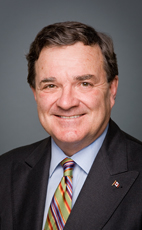Mr. Speaker, In response to (a), details on the spending of the federal government can be found in the Public Accounts of Canada. The Public Accounts of Canada are archived in the Library and Archives Canada's electronic collection at http://www.collectionscanada.gc.ca/electroniccollection/index-e.html. For information on planned expenses for 2010-11, please consult the main and supplementary estimates at http://www.tbs-sct.gc.ca/est-pre/index-eng.asp. The main and supplementary estimates provide a breakdown of planned spending by standard object of expenditure that can be compared to previous years Public Accounts.
In response to (b), budget 2010, see pages 156 to 168, implemented a number of targeted measures to bring the budget back to balance by reducing the rate of spending growth over the medium term. For more information, please visit http://www.budget.gc.ca/2010/home-accueil-eng.html.
In response to (c), the Bank of Canada does not publish revenue or expenditure projections for the federal government.
In response to (d), budget 2010, see page 12, was clear: “The Government will not raise taxes and will not cut major transfers to persons and other levels of government.”
In response to (e), budget 2009 announced a review of corporate assets. No decisions have been taken to date and no savings booked. A systematic review of corporate assets is a normal part of good governance and contributes to the ongoing reallocation of financial resources from low to high priorities in order to maximize economic benefits to taxpayers.

